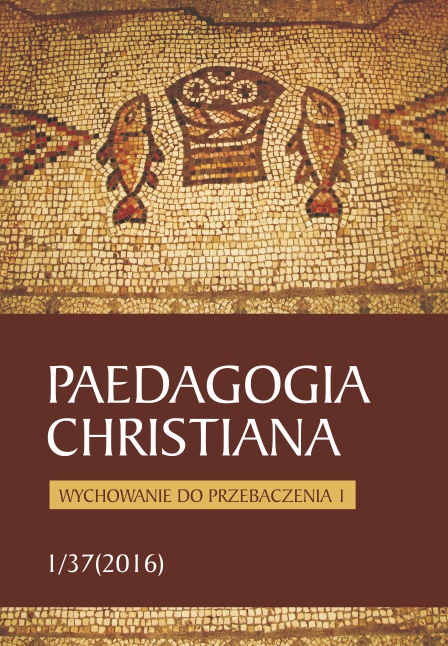Forgiveness: Can it be Achieved in the International Relations?
DOI:
https://doi.org/10.12775/PCh.2016.007Keywords
forgiveness, reconciliation, guilt, international relationsAbstract
The answer to the above question presented in the lecture is as follows: yes, forgiveness can be achieved in the international relations, even if it is rare case, difficult to realize and never perfect. In the first part of his report, author discusses some important steps of forgiveness as a response to the harmful violation. The first step is a withdrawal from the revenge, the next one – resignation from the trial by jury. Yet the deepest meaning of forgiveness is perfectly revealed in the Gospel. Author stresses out that the forgiveness is first of all God’s action, performed by Jesus Christ in the mystery of Redemption. From the Christian point of view every human forgiveness is rooted in the God’s mercy and in His command to be merciful addressed to all His followers. The Parable of Prodigal Son (Lc 15, 11–32) shows that the very essence of forgiveness is the will to reconciliation with the performer of violation, whose absence is recognized as greater evil than the harm he has done.
The second part of the report includes reflection on some recent examples of the efforts aiming to achieve the attitude of forgiveness, undertaken by the Polish Catholic Church. One of them seems to be very successful (the Polish-German reconciliation), the other ones (concerning the Polish-Russian and the Polish-Ukrainian relations) not so much. Author reflects on the reasons of this difference pointing out the importance of the good preparation of a process of reconciliation between the different nations and states. In the conclusion, author explains why this process must have a permanent character and what should be done to support it.
References
„Bulla Misericordiae vultus”. W: Franciszek, Miłosierdzie to imię Boga. Rozmowa z Adreą Torniellim, tłum. Joanna Ganobis, 133–172. Kraków: Wydawnictwo Znak, 2016.
Halík, Tomáš. Wzywany czy niewzywany Bóg się tutaj zjawi. Europejskie wykłady z filozofii i socjologii dziejów chrześcijaństwa, tłum. Andrzej Babuchowski. Kraków: WAM, 2006.
Jan Paweł II. „Encyklika Dives in misericordia o Bożym Miłosierdziu”. W: Encykliki bł. Ojca Świętego Jana Pawła II, 49–86. Kraków: Dom wydawniczy „Rafael”, 2011.
List biskupów greckokatolickich Ukrainy i rzymskokatolickich Polski z okazji aktu wzajemnego przebaczenia i pojednania, www.episkopat.pl/dokumenty/listy_pasterskie/4505.1,Pokoj_miedzy_narodami_jest_mozliwy.html (dostęp: 30.04.2016).
Orędzie biskupów polskich do ich niemieckich braci w Chrystusowym urzędzie pasterskim. www.opoka.org.pl/biblioteka/W/WE/kep/oredzie.niem_18111965.html (dostęp: 30 04.2016).
Platon. Prawa, tłum. Maria Maykowska. Warszawa: PWN, 1960.
Polak, Grzegorz. „Kościół i pojednanie z sąsiadami”. Niedziela, 16 lipca 2012.
Wspólne przesłanie do Narodów Polski i Rosji, www.episkopat.pl/dokumenty/pozostale/4396.1,Wspolne_Przeslanie_do_Narodow_Polski_i_Rosji.html (dostęp: 30.04.2016).
Downloads
Published
How to Cite
Issue
Section
Stats
Number of views and downloads: 453
Number of citations: 0



